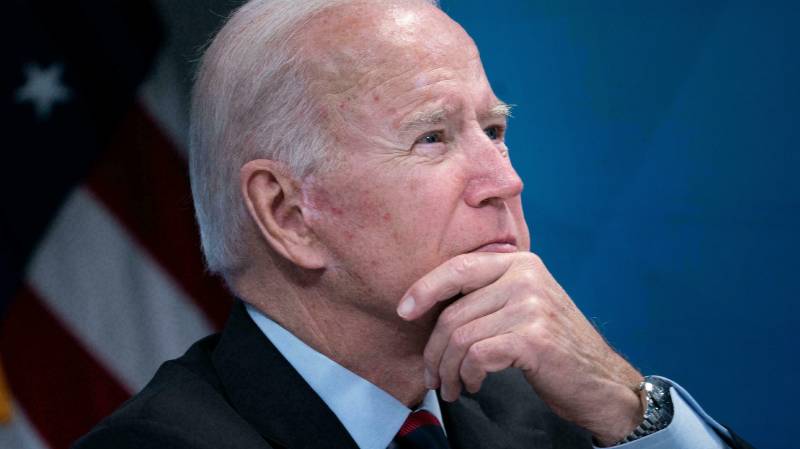Biden battles to win narrative in speech on Afghan exit

Stay tuned with 24 News HD Android App

President Joe Biden addresses the nation Tuesday on the US exit from Afghanistan after a failed 20 year war that he'd vowed to end but whose chaotic last days are now overshadowing his presidency.
The Democrat was due to deliver his remarks at 2:45 pm (1845 GMT), the White House announced, marking a delay from the original timing for the speech.
Getting out of the last post-9/11 "forever war" was one of Biden's biggest campaign promises coming into office. And the idea was overwhelmingly popular.
Following 2,356 US military deaths, many thousands wounded and an estimated $2.3 trillion spent on an endeavor which began in victory over the Taliban, only to end with those same insurgents sweeping back to power, Americans had lost interest.
But the departure, culminating with a solitary airplane lifting at midnight from Kabul with the last troops and diplomats, brought home for many that the so-called "drawdown" or "retrograde" really amounts to jarring defeat.
And Biden, owning that defeat, now finds himself in politically perilous territory.
After two weeks of evacuation flights, a titanic effort marred by a suicide bombing that killed 13 US service members and scores of Afghans, Biden left it to the Pentagon and State Department to give the final announcement on Monday.
Sunday, he'd attended the arrival back on US soil of the caskets containing the remains of those 13 slain military members -- the last Americans in uniform to die in a war the public had long given up wanting.
On Monday, Biden briefly appeared in public, meeting virtually with southern state and local officials to discuss the response to Hurricane Ida. But he took no questions from journalists.
And when the Pentagon announced the last plane had safely departed, Biden issued only a written statement urging "grateful prayer."
With his speech in the White House's ceremonial State Dining Room, Biden will have a chance to explain his vision.
Republicans, led by Biden's bitter predecessor Donald Trump, paint the exit as a humiliating failure, a defeat that outdoes even the 1975 evacuation from Saigon, and a signal to the world that the United States has given up.
Biden is likely to make a quite different argument: that escaping a war on the other side of the world was never going to be pretty and that he is the first president in 20 years with the courage to follow through on what everyone knew had to happen.
Victory or defeat?
While leaving Afghanistan was certainly popular, the manner of the exit shocked Americans.
The chaos began with the sudden collapse of the US-installed Afghan military, allowing the Taliban to fan out across the country virtually unimpeded.
That abrupt change in the power balance sparked an extraordinary airlift lasting two weeks, in which about 120,000 people -- most of them Afghan allies -- were flown out.
There is no shortage of critics over how this operation was conducted.
As many as 200 American citizens are said to have been stranded, unable to reach the airport. The suicide bombing that killed the 13 military members was especially cruel, given that five of the victims were only 20 years old -- barely alive when the war started.
And the fact that the entire evacuation only took place because the Taliban allowed it to do so was a painful reality check.
But Biden will counter that what happened was a triumph.
"The past 17 days have seen our troops execute the largest airlift in US history, evacuating over 120,000 US citizens, citizens of our allies, and Afghan allies of the United States," Biden said in his statement on Monday.
"They have done it with unmatched courage, professionalism, and resolve."
In that statement, Biden also repeated assurances by US and international officials that the Taliban have agreed to allow those still stuck in Afghanistan to leave.
For him, this was not a fiasco, but a bold escape from a nightmare.
The clash of narratives could do much to determine the fate of the Democrat's whole first term -- and the afternoon speech at the White House will be his chance to make his case.
